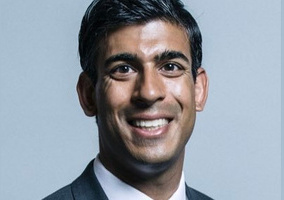Policy-making for charities would be moved back to the Cabinet Office under a Labour government, according to the shadow charities minister.
Labour would also ensure that its charities spokesperson sat in the House of Commons, Rachael Maskell said, in an implicit criticism of the Conservative charities minister, Baroness Diana Barran, who cannot be questioned by MPs because she is a life peer in the House of Lords.
Maskell was speaking at an online event hosted by the charity think tank NPC, where she described the government’s £750m emergency support package for the sector as “loose change”.
Policy moved out of DCMS
Placing the minister for civil society `and their officials in the Department for Digital, Culture, Media and Sport means that work on the sector is “outsourced somewhere into a corner of government”, Maskell said.
“We want to see the voluntary sector front and centre, and Labour showed its efforts well by putting it in the Cabinet Office where I think it belongs."
The position has been based at DCMS since 2016.
She added: “On top of that, what I think is really important is that we have a minister in the House of Commons not in the House of Lords. It does matter. We currently have a spokesperson in each house just to cover that ground.”
Charities and the limits of the state
In a signal that Labour might put greater emphasis on the voluntary sector than under its previous leader Jeremy Corbyn, Maskell argued that expert work by charities complements services provided by local and national government.
She said: “We know that there is limited capacity to the state. And, therefore, what comes from the sector is that additionality, that expertise, and we have got to learn from that.
“If we are going to form a government that is truly going to address the pain of the country, bring the healing our country needs, and bring our country forward, [then] without the partnership of the voluntary sector we are not going to be able to do that.”
Labour's 2019 general election manifesto pledged to “work with organisations and charities already making the UK a more equal and fairer society”, but offered little specific policy detail beyond repealing the Lobbying Act.
Government “incredibly slow” getting money out
Addressing the £750m support package for charities, announced by the Treasury in April, Maskell said: “I have read the reports about the impact that [the pandemic] is having. We could be losing 60,000 jobs in the sector, which would be an absolute disaster.
“If you saw that happening in any other sector there would be an outcry from government, but because the sector does not have the power and partnership, those losses and that pain are not necessarily heard as loudly.”
She added: “I believe that the government has been incredibly slow at getting money out, and there is also far too little of it.
“It really seems like the loose change at the bottom of the pocket is what has been thrown to the sector, as opposed to really giving it a proper bailout and support, to see it transition into the next era we are going to be part of.”
The danger of large contracts
Maskell also warned large charities working closely with government not to lose their “authenticity” in pursuit of contracts.
She said: “I think lots of organisations have changed themselves to be able to compete, in a very competitive environment.
“Therefore, instead of having confidence in themselves, what they have done is morph into what society or governments have thrown at them.
“I think that if they are up against [private contractors like] Serco, that are undercutting contracts and underfunding the true value of those contracts and then bombing these expert organisations out of the way, then they [charities] are kicking back in the way they know they can to say, ‘well actually we can prove that we are better than you’.
“We don’t want to create that competitiveness which means that we don’t get the authenticity of organisations. That is why we have to dig down into looking at that relationship [between government and charities] again.”
Maskell was joined in the webinar by Labour Birmingham councillor Paulette Hamilton, Guardian journalist David Walker, and NPC chief executive Dan Corry, who was previously a Labour special adviser.
Related articles












